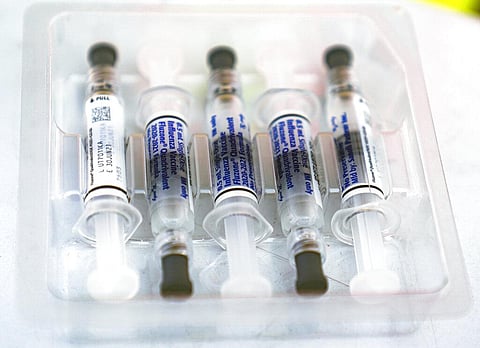

KOCHI: For the world reeling under the impact of the Covid-19 pandemic, a vaccine for the virus would be nothing less than the elixir of life, and its creators, champions of humanity.
World over, researchers are inching closer to the Eureka moment, with every step in the process of vaccine development grabbing headlines around the globe every day.
Experts, however, warn that undermining any of the extensive regulatory safety protocols that are mandated for vaccine trials, in the rush to develop the vaccine first, could spell disaster in the long run.
Many countries from around the world are seemingly in a race to come first, to hit the international market with a Covid vaccine, since this would evidently be the end of the pandemic, muzzling the virus effectively.
Final stage results of the Pfizer/BioNtech vaccine and the Moderna vaccine developed in the US were released on Wednesday. Pharma companies that developed these vaccines are expected to seek emergency regulatory approvals soon.
The AstraZeneca vaccine developed by Oxford University and the Sputnik V vaccine developed by Russia are also in their Phase III trials and so far their results have been encouraging.
However, the regulatory authorities have not yet given their approval to any of these vaccines.
“Though the limited time frame in which these emergency vaccines have been developed is worrying and has increased the risks involved manifold, at this point, humanity itself has been driven to such desperation that nations are willing to take these risks. Tragic incidents with vaccines in the past are lessons learnt that warn us not to repeat our mistakes. Once a vaccine clears all trials successfully, another challenge would be in prioritising who gets it first. Even after licences are accorded for such a vaccine to be produced, it would be prudent to wait and observe the outcome, before rushing headlong into a vaccination drive,” said Dr G Vijayaraghavan, vice-chairman and founder-director of Kerala Institute of Medical Sciences.
The Cutter incident in 1955, wherein the last two batches of the vaccine from Cutter Laboratories were contaminated with live poliovirus due to incomplete inactivation, resulted in serious health complications for the public. The influenza vaccine developed in 1976 was also a failure, as it caused paralytic disease among several people.
“History has also taught us the importance of continued surveillance of potential vaccine-related adverse events and measurement of immunogenicity and outcomes even after licensure. The general public must be aware of past incidents and should not get too excited once a vaccine hits the markets,” said a general physician working in a government hospital in Kochi.
Multiple Covid-19 vaccine trials are currently being conducted in parallel, with many additional candidates in preclinical development stages.
Last week, the Kerala Government had also started collecting the names of healthcare workers, who will be first in line to be administered the vaccine.
“If the regulatory agencies maintain their well-documented safety protocols, Covid vaccines will be safe. The best shot for India will be the Oxford vaccine, as its trials have been carried out here as well. There is not much possibility for the Pfizer and Moderna vaccines to hit the Indian market. The Pfizer vaccine must be stored at -75 degrees Celsius and transporting it here would be nothing short of a nightmare. Our best shot is the Oxford vaccine, which has a strong immune response,” said Dr Vijayaraghavan.